When Sahar Qumsiyeh met with fellow Latter-day Saints in Bethlehem for the first time, she had only been a member of the Church for roughly a decade—but she was already one of the most experienced members. Sahar was returning home to a place that was very dear to her heart, even though the memories of violence she experienced there earlier in life had haunted her for years.
She had no idea that her experience of growing up in chaos, poverty, and violence would allow her to minister more effectively to these precious members, or that the solace she found in the gospel would help them grow into a strong branch. There were times she wondered if she’d failed in her efforts to serve, but looking back now, she sees how the Lord used who she was to bring peace to her past and to bring hope to others in need.
Faith Over Fear
The Israeli-Palestinian conflict is one of history’s longest. Since 1948, the two groups have been engaged in almost constant strife.1 Sahar’s childhood and young adult years were full of uncertainty. Even though she knew about Jesus Christ—her family was Greek Orthodox—she describes herself as a young woman full of hopelessness and anger.
“All the time [while growing up] I was praying,” Sahar says, “but I really didn’t think He cared. I didn’t really think He loved me. I kept wondering, ‘Why do you hate the Palestinians? Why are you causing all this?’ I wish I [had known] that He loved me and He listened to my prayers. And that I wasn’t alone.”
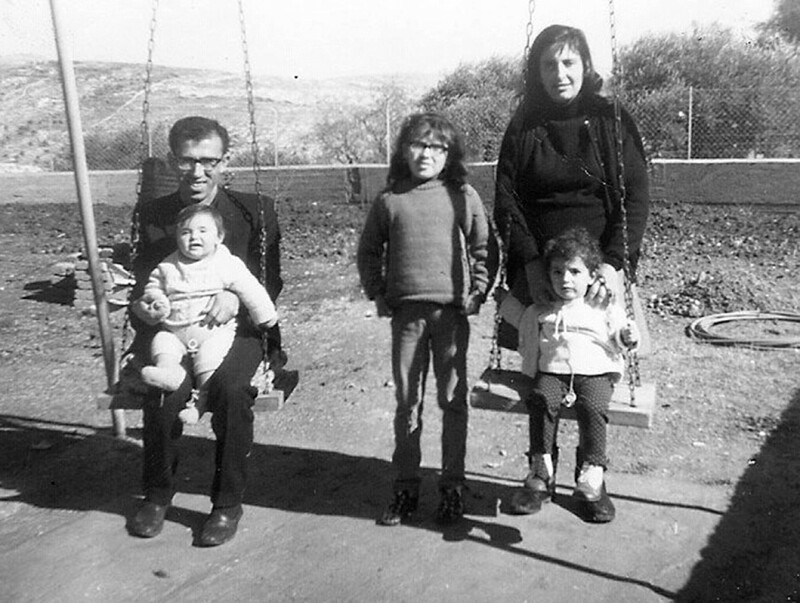
By the mid-1990s, Sahar’s desire to pursue a master’s degree in a more peaceful environment was understandable, but her decision to attend Brigham Young University was baffling to many who knew her. She applied on a whim, and her mother said that Utah was a desert in the middle of nowhere, and other family members told her rumors about strange “Mormon” beliefs. But Sahar says she had a strong feeling she should attend BYU, and today she can see how the Lord’s hand had been guiding her.
While living in Utah, she was listening to general conference at the invitation of a friend when she heard President Gordon B. Hinckley say, “Jesus is the Christ, the promised Messiah, who came to earth in the most humble of circumstances, who walked the dusty roads of Palestine teaching and healing, who died upon Golgotha’s cruel cross and was resurrected the third day.” At the mention of Palestine—not Israel—her ears perked up. “Most Americans call [my homeland] ‘Israel’ and having a leader in this church stand up and refer to it as Palestine just meant something to me,” she recalls.
► You may also like: How general conference inspired a Palestinian and a Southern Baptist to join the Church
Sahar was baptized a member of The Church of Jesus Christ of Latter-day Saints in February 1996, two years after she came to the United States. But her experience as a Latter-day Saint—one who was living in Utah among so many other members—drastically changed when she returned to her homeland. She would become a source of strength for many Church members in the Middle East and encounter difficulties that would help her develop the testimony she has today.
“I couldn’t go about my day without praying for help. … You feel that you rely so much on God, and He becomes your everything.” —Sahar Qumsiyeh
“Our Faith Keeps Us Going”
After finishing her education at BYU, Sahar returned to the Middle East and eventually went on to pursue a doctorate in statistics in Turkey. The small branch she attended had challenges even beyond what most small branches of the Church deal with. Roughly 10 members met at the branch president’s house in Ankara, Turkey, each Sabbath, and the biggest issue they faced was a language barrier; two of the Turkish members did not speak English.
“We did all the services in English, so they just sat there, which felt horrible [to me],” Sahar says. As soon as the branch president found out Sahar could speak a few words in Turkish, however, she became their unofficial translator, helping the Turkish Saints learn and hear more of the gospel in their native tongue.
Sahar left Turkey after completing her doctorate and returned to Palestine, where she began attending the Jerusalem Branch. When she’d lived there as a girl, she’d had moderate freedom to travel within the country, but that was no longer the case. As a Palestinian living outside of Jerusalem, trying to attend branch meetings in the city on a regular basis was a nightmare. Sahar’s home in Bethlehem was about eight miles away from the BYU Jerusalem Center where branch meetings were held. The journey could technically be driven by car in 20 minutes or less, but never once did Sahar get there that quickly. Military-imposed curfews and checkpoints complicated her journey and put her in danger of arrest. To get to branch meetings, she was usually forced to walk, climb hills, and hide from soldiers.
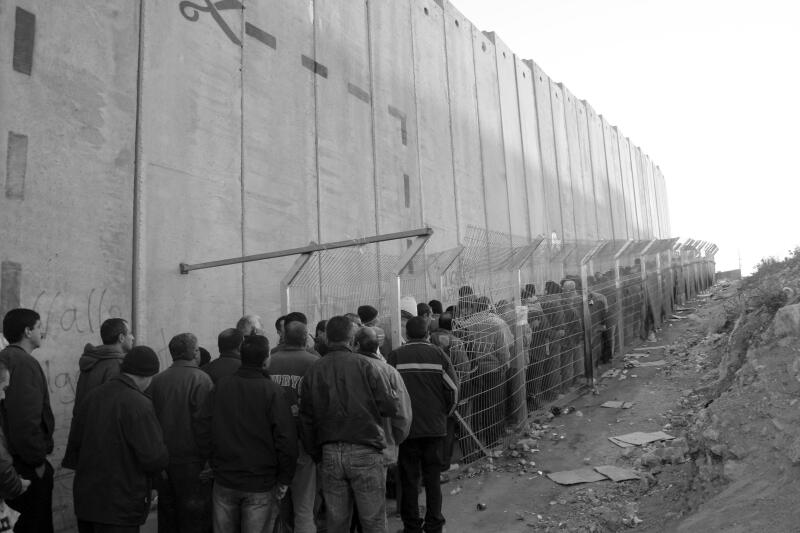
Sahar was once asked to give a talk in sacrament meeting, but a curfew was put in place for her area the day before. Curfews in Bethlehem were very serious. Their length was indefinite—sometimes they lasted just a day; at other times they went on for weeks. Despite the dangers, Sahar felt Heavenly Father needed her to attend the branch meeting that day and give her talk. But how?
“Like Nephi when he went ‘not knowing,’ I feel that sometimes Heavenly Father tells us to do something, and we just have no clue how we’re going to get it done. But if He tells us to do something, we have to start moving,” Sahar says.
And Sahar did just that. She got ready for church and walked out the door. To her shock, she spotted a taxi just up the road from her home. Even outside periods of curfew, taxis were unheard of on her tiny street. She approached the taxi driver and asked what his destination was—he was headed to Jerusalem.
The experienced driver avoided all the local roads where he knew soldiers would be camped out, but when they approached the single road leading out of town, the soldiers were there and unavoidable. Instead of risking an uncomfortable conversation with the armed men, the driver turned the car into a hay field and continued. The bumpy field led to a dirt road where they encountered yet another obstacle—a huge pile of rocks completely blocking the road. Once again, Sahar, as well as other passengers who’d joined her in the taxi, assumed their journey was over. But the driver found a way through, navigating across a field of olive trees until they reached the other side of the rocks. Sahar knew that through that driver, her prayers had been answered.
“Heavenly Father steps in to do what we can’t do,” she says. “Because somehow, He makes it work. I don’t know how He does it, but He sets out the path for you and helps you accomplish the things that He wants you to do.”
But why did she make such huge sacrifices to attend her church meetings? In her book, Peace for a Palestinian, she writes, “In Palestine, we don’t keep our faith; our faith keeps us going. … Sometimes the things Heavenly Father asks us to do may be difficult, but they will always be things that will bring us the highest degree of joy and peace.”
► You may also like: How a Palestinian woman found the Church and risked her life to live the gospel
Strengthening Her Home Stake of Zion
From 2007 to 2013, Sahar attended both the Jerusalem Branch, which met on Saturdays, and the Bethlehem Branch, which met on Sundays.
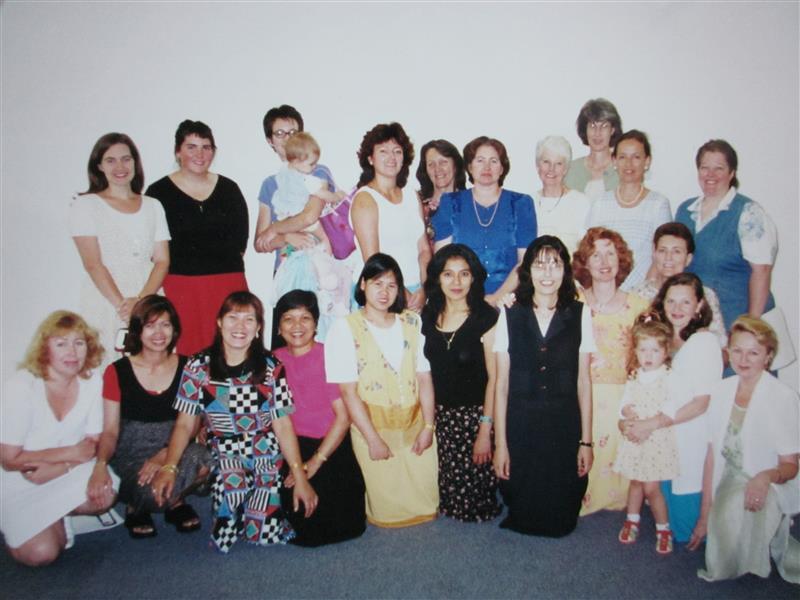
At the time, Blaine Gunther was the Bethlehem Branch president while he and his wife were serving as volunteers at BYU’s Jerusalem Center. The membership of the Church on the West Bank consisted of branches in Jerusalem, Bethlehem, Galilee, and Tel Aviv. While the Jerusalem Branch was by far the largest, with about 200 members attending regularly (mostly students and expatriates), the Bethlehem Branch, where Blaine and Sahar served, had a regular attendance of about five people.
“[Sahar] was willing to do whatever I asked,” Blaine says. “She had a good understanding of the members and their challenges. She had good insight and shared her perspectives. She was firm in her testimony and committed in her actions. She was steady, reliable, even-tempered. She had common sense. She could have chosen to be angry, but she chose to be forgiving and not fret about things she could not control.”
That reliability, commitment, and understanding of the members’ challenges was put to good and frequent use. In fact, Blaine credits Sahar as the primary reason the Saints in Bethlehem went from a group to an officially organized branch. She faced demanding hurdles and frustrating restrictions, but a deep love for her fellow Latter-day Saints and a desire to help them be their best kept Sahar going.
“[Sahar] could have chosen to be angry, but she chose to be forgiving and not fret about things she could not control.” —Blaine Gunther
When the Church began renting a basement apartment for the Bethlehem Branch’s Sabbath worship meetings, Sahar managed nearly everything, including purchasing furniture, finding movers, setting up internet, and paying utility bills. Due to the building’s location, people would often throw their garbage in front of the doorways, so every week Sahar could be seen filling bags with discarded cigarettes, bottles, and toilet paper so she could dispose of them before branch meetings.
Very few members of the branch at that time were employed, so there was also a huge financial need. Blaine and other branch leaders were not permitted to go into Bethlehem beyond their church meeting location, let alone miles away to visit members. In fact, for safety reasons, they were asked to park on one side of a fence, walk through a checkpoint, go directly to the branch building, and then retrace their steps right after the meeting was over. But because Sahar was a resident and spoke both Arabic and English, she became their de facto communication channel, visiting members and connecting them with much-needed resources and financial support.
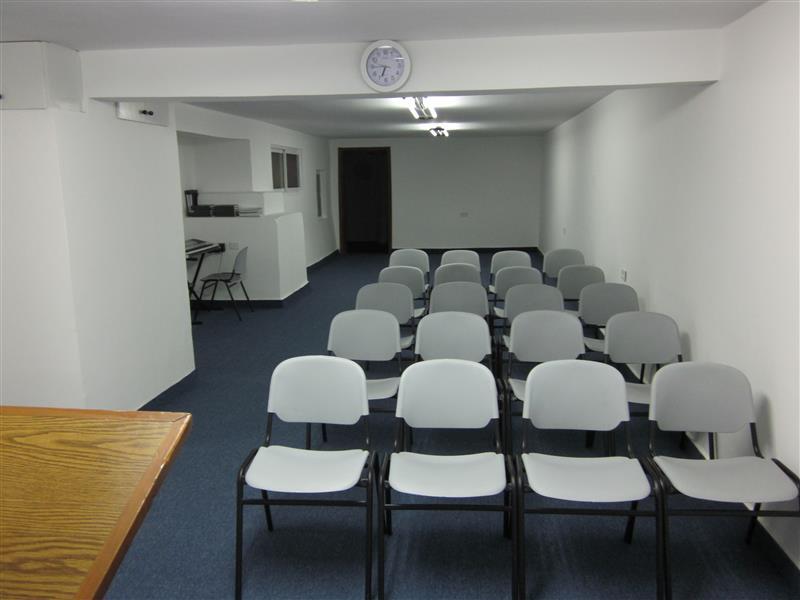
Helping the Primary-age children in the branch was also a daunting task. Because their families were mostly new converts to the Church, many of the children had little to no knowledge of the gospel. And as for their behavior, the word “wild” comes close to painting a picture of the Primary lessons Sahar describes. She says that if no one was crying at the end of the lesson, she considered it a success. But as a woman who had grown up in that same tumultuous environment, Sahar also had a great deal of empathy for these children and their families.
“Those families had so many trials—sickness and death,” Sahar says. “They were so poor and struggling in a lot of different ways. So we kept doing it.”
In 2013, at the age of 42, Sahar was called to serve a full-time mission in England speaking English. As she left home, Sahar thought she’d failed the Saints in Bethlehem, feeling there was very little to show for the decades she’d spent serving there.
“Every Primary day seemed the same. Every lesson seemed the same. I was repeating myself, and I [thought] I wasn’t getting anywhere, and nothing was changing,” she says.
But recently her outlook changed when she received a text message from one of her former Primary children in Bethlehem, who is now a young woman. The young woman told Sahar that she reads her scriptures with her dad every day, and she thanked Sahar for teaching her how to pray.
“Sometimes you get so discouraged [when you’re] trying to do something and you’re feeling like a failure. [But] there’s something there that’s happening, and I did slowly see it: I would see a child pray for their mom to find a job, [and] she would find a job,” Sahar says. “Gradually, I saw them learn how to pray and learn how to recognize that they have a Father in Heaven who loves them. Sometimes we serve others or do what we can and feel like, ‘Oh, I haven’t done anything,’ but it [does make] a difference.”
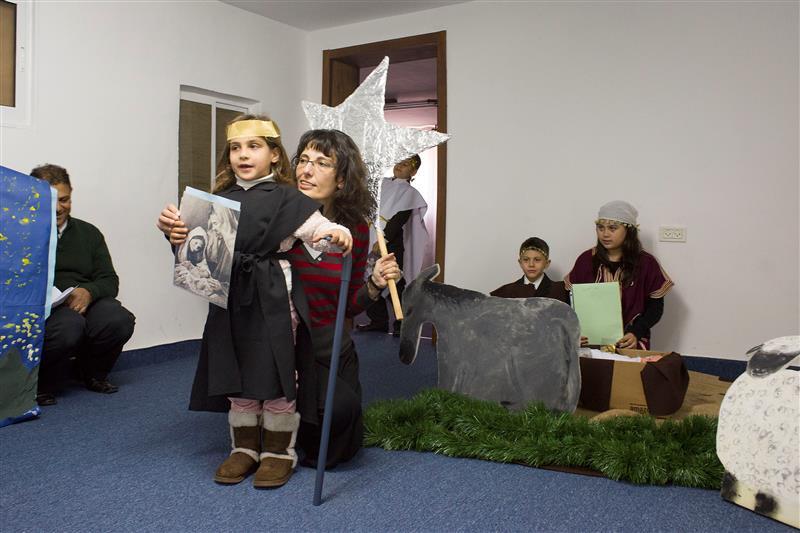
Continuing to Teach and Serve with Love
Today, Sahar’s life looks very different—but in some ways it is very similar. She still spends much of her time teaching, but she is now a math professor at Brigham Young University–Idaho. Dr. Jackie Nygaard, the math department chair at the university, has seen the obvious influence Sahar has on her students.
“Sahar’s professional knowledge and teaching ability is outstanding on its own merit, but her experience in Palestine adds a depth to her ability to connect with students in powerful ways,” Nygaard says. “I remember sitting in her class one time conducting an evaluation. I was quietly observing and didn’t think the students noticed I was there, but one of the students turned and, without me asking, she volunteered, ‘Sister Q is the best professor I’ve had at BYU–Idaho.’”
Unlike much of her youth in Palestine, Sahar now has running water and a central air system in her home, and the ambient sounds of her neighborhood are much more peaceful. She also serves as stake Primary president and continues to work hard making sure other people know they are loved. Her current bishop, Jared Neal, admires Sahar’s convictions and commitment to the gospel.
“She is a faithful member who is willing to serve in any capacity. When she teaches, the Spirit is always so strong. It’s hard not to be inspired by such an amazing person,” Jared says.
Sahar notes that the feelings she had while growing up of abandonment by God, both as a Palestinian without a national identity and as a girl without many friends, would have been flipped upside down had she known that God cared about her and was always by her side. The ugly worthlessness she felt if she was ever unkind to her loved ones might have been erased had she understood God’s divine gift of forgiveness. And the constant conflict and havoc around her could have been alleviated by the inner peace she has found in the knowledge of a loving Heavenly Father and His divine plan.
Yet Sahar says the chaos of everyday life in her homeland shaped her faith in ways she will always be grateful for.
“[In Palestine], I felt like I needed [to go to church] to survive,” she says. “I couldn’t go about my day without praying for help because life was just so hard that you can’t function without that. You feel that you rely so much on God, and He becomes your everything. It’s stretching, it’s hard, but it’s great at the same time. I wouldn’t trade those days for anything.”
Peace for a Palestinian: One Woman's Story of Faith Amidst War in the Holy Land
Whether your own obstacles are great or small, Sahar's message will help you discover that the true source of peace and comfort is the same for all of us.



